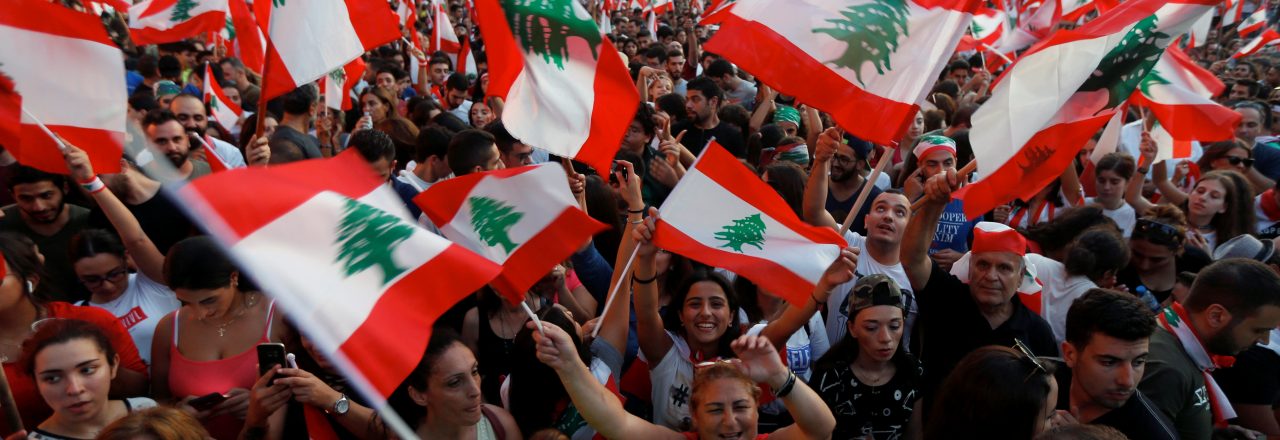
Hundreds of thousands of Lebanese take the streets to protest against the economic crisis
Since 17 October, hundreds of thousands of Lebanese have got to the streets to protests against the current economic crisis that the country is facing. Protesters called for the government, led by Saad al-Hariri, to step down, blaming it for the rampant corruption that has taken the economy to the brink of collapse. Protesters also called for the resignation of the President of the Republic Michel Aoun and the speaker of the Parliament Nabih Berri. The protests were sparked by a proposal to levy a new tax on WhatsApp calls, which has been removed by the Minister of Telecommunications, and follows weeks of mounting tension due to the devaluation of the currency, a lack of dollars on the exchange markets as well as over 100 active fires that have ravaged several areas of the country. Several dozens of people have been arrested due to clashes with security forces, although the overwhelming majority of the protests are peaceful. Prime Minister Hariri addressed to the nation on 18 October giving 72 hours to his cabinet, composed by members of different parties, to undertake the needed reforms. In addition to Hariri, four ministers of the national unity government already resigned. Hassan Nasrallah, leader of Hezbollah, spoke against Hariri’s government resignation. On 21 October several media outlets have reported that the proposed measures by the Lebanese government include a 50% cut in salaries of current and former senior officials as well as reductions in benefits for state institutions and officials. Besides, they also include $3.3 billion to be provided by the central bank and private banks to achieve a “near zero deficit” for the 2020 budget, the privatisation of the telecommunications sector and overhaul of the electricity sector.
- The Euromed news are edited by the team of the Euro-Mediterranean Policies Department of the European Institute of the Mediterranean -


